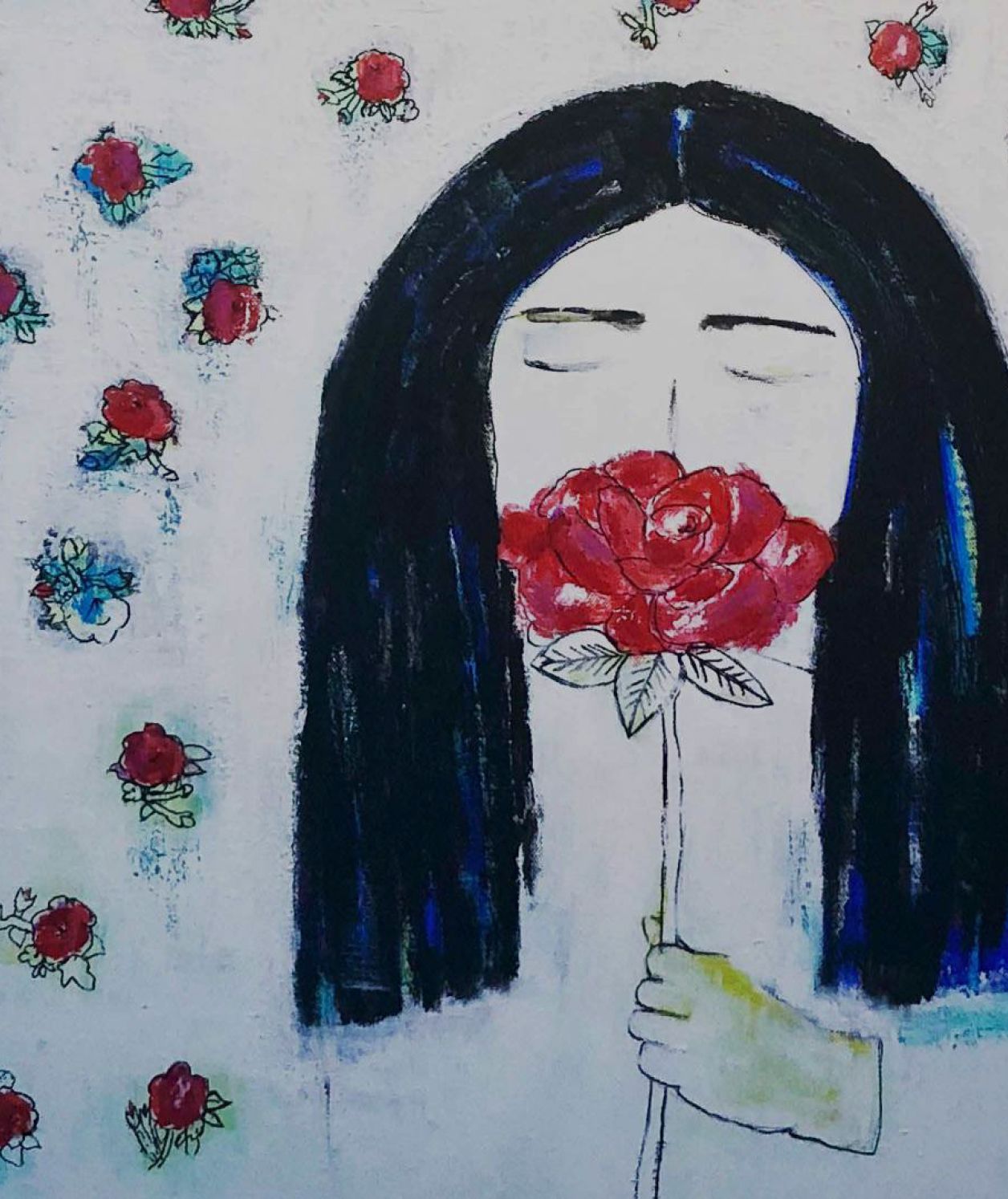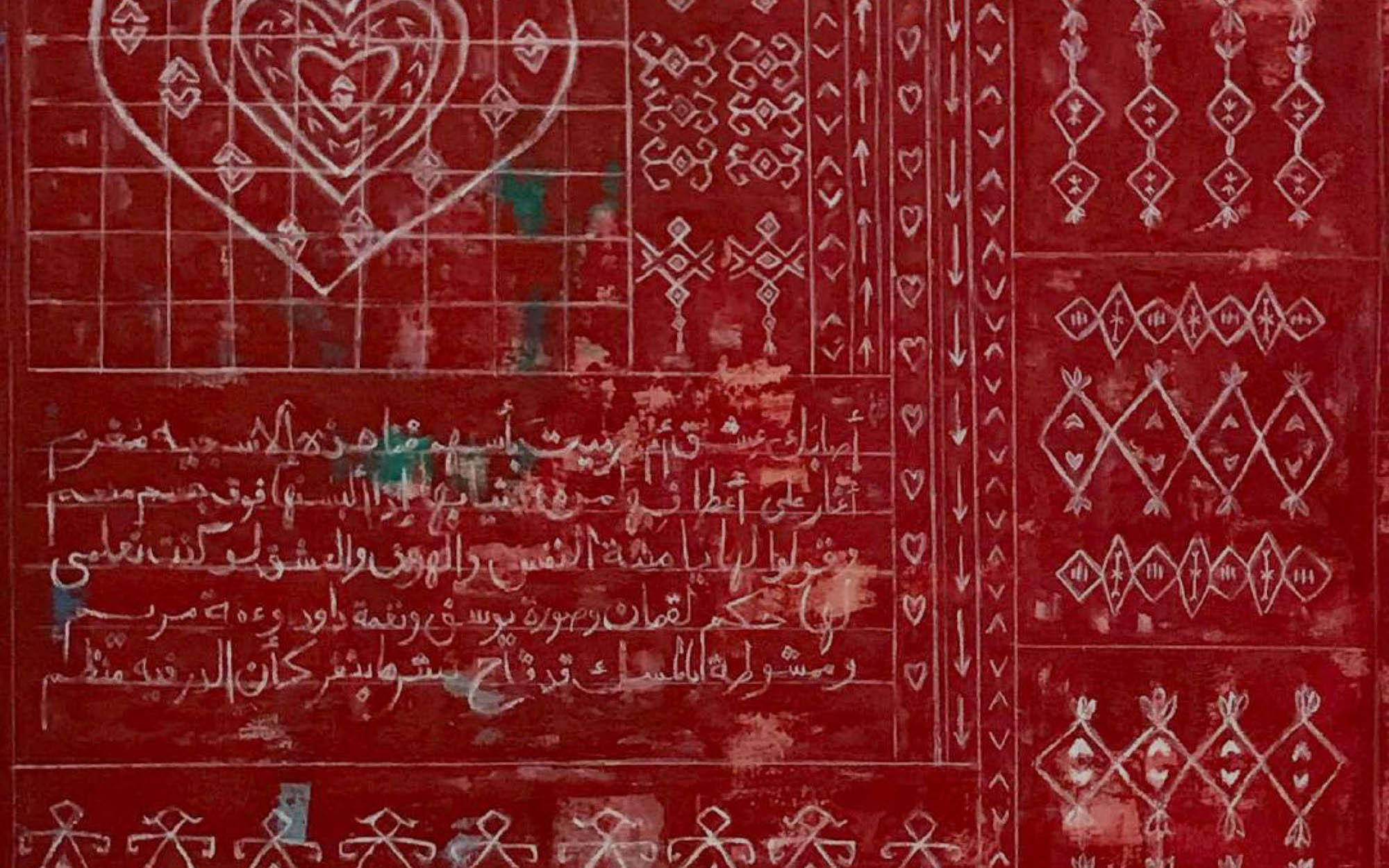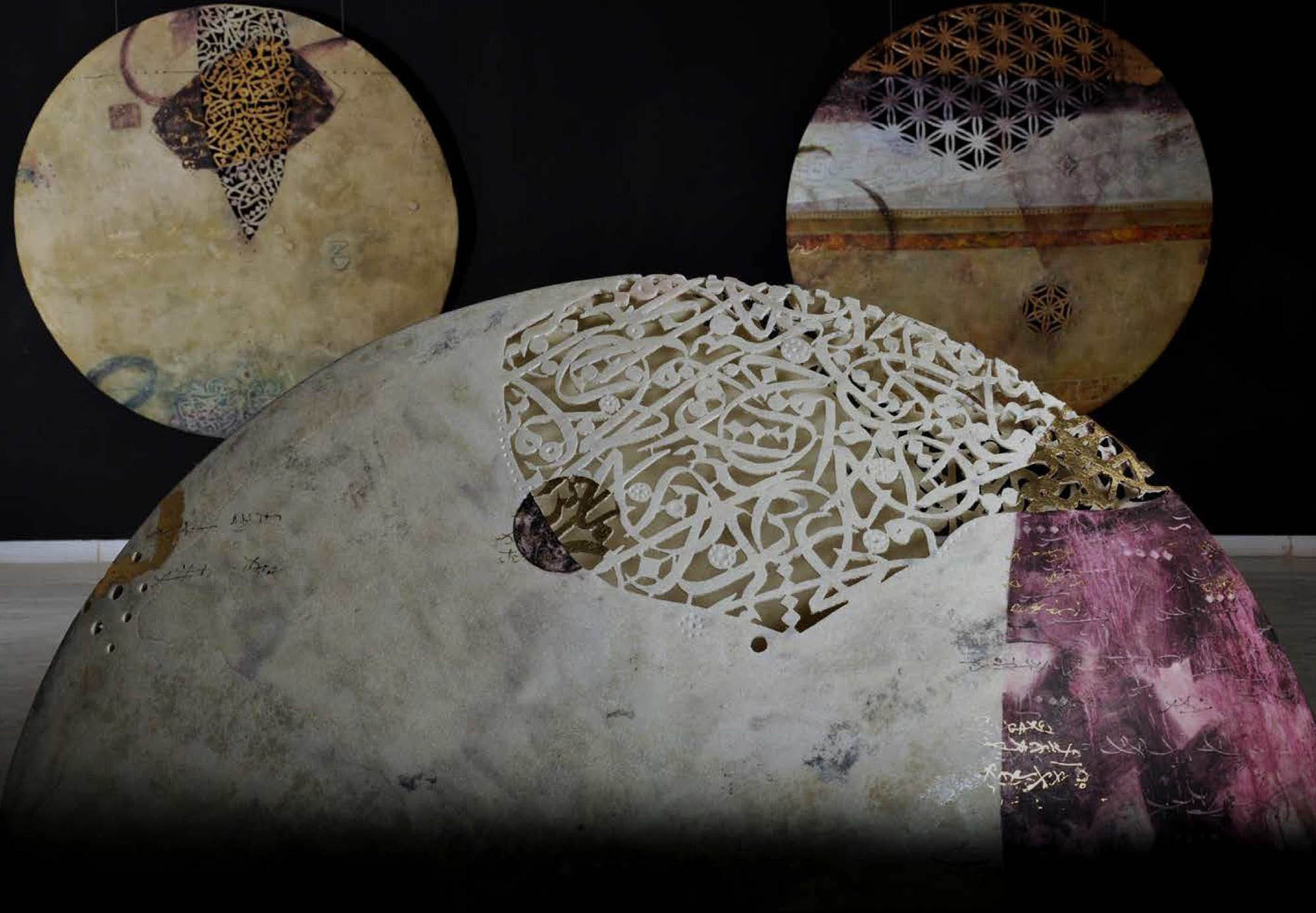Tales of love from the Middle East
Scheherazade and Shayrar.
The tale of Scheherazade and the sultan, Shayrar, lasted 1,001 nights; it is a story of a man’s heartbreak that turns into a murderous serial streak and a tremendous blossoming love. When Shayrar’s first wife proves unfaithful to him, he resolves to marry a new virgin every day and kill her by dawn so she could never cause a scandal. When there were no more noble virgins for Shayrar to marry, the vizier offers his daughter, Scheherazade. Scheherazade is a brilliant beauty, and with her sister, Dunyazad, they plan to delay her death. Dunyazad asks Scheherazade to tell a story. As
the night passes and dawn comes,Scheherazade’s story captivates the sultan, but she never finishes. Shayrar is so eager to hear the rest of the tale, he delays her death, and she, cleverly, ends the story the next night and began another. Night after night, Scheherazade evades her death, and the sultan gradually admires her. After 1,001 nights and 1,000 stories, Scheherazade has no more stories to tell him. Their tale ends with the sultan in love with Scheherazade, making her his queen, and the Middle Eastern stories of One Thousand and One Nights enters the world.
Shams “Al-Majnun” Al-Faransi ibn Fattuta ibn Rumi became famous for his poetry and adventurous life. His greatest adventure was his “Virgin Love” with Marwa bint Ahmad. On his trip to Spain, the couple met and instantly fell in love. They fled to Europe together, but their unfortunate fate tagged along. Al-Faransi wrote songs about her and poems about flying and taking Marwa with him, dreaming of soaring the air with their love. He asked for her hand in marriage, but was waylaid to Africa by the Caliph.
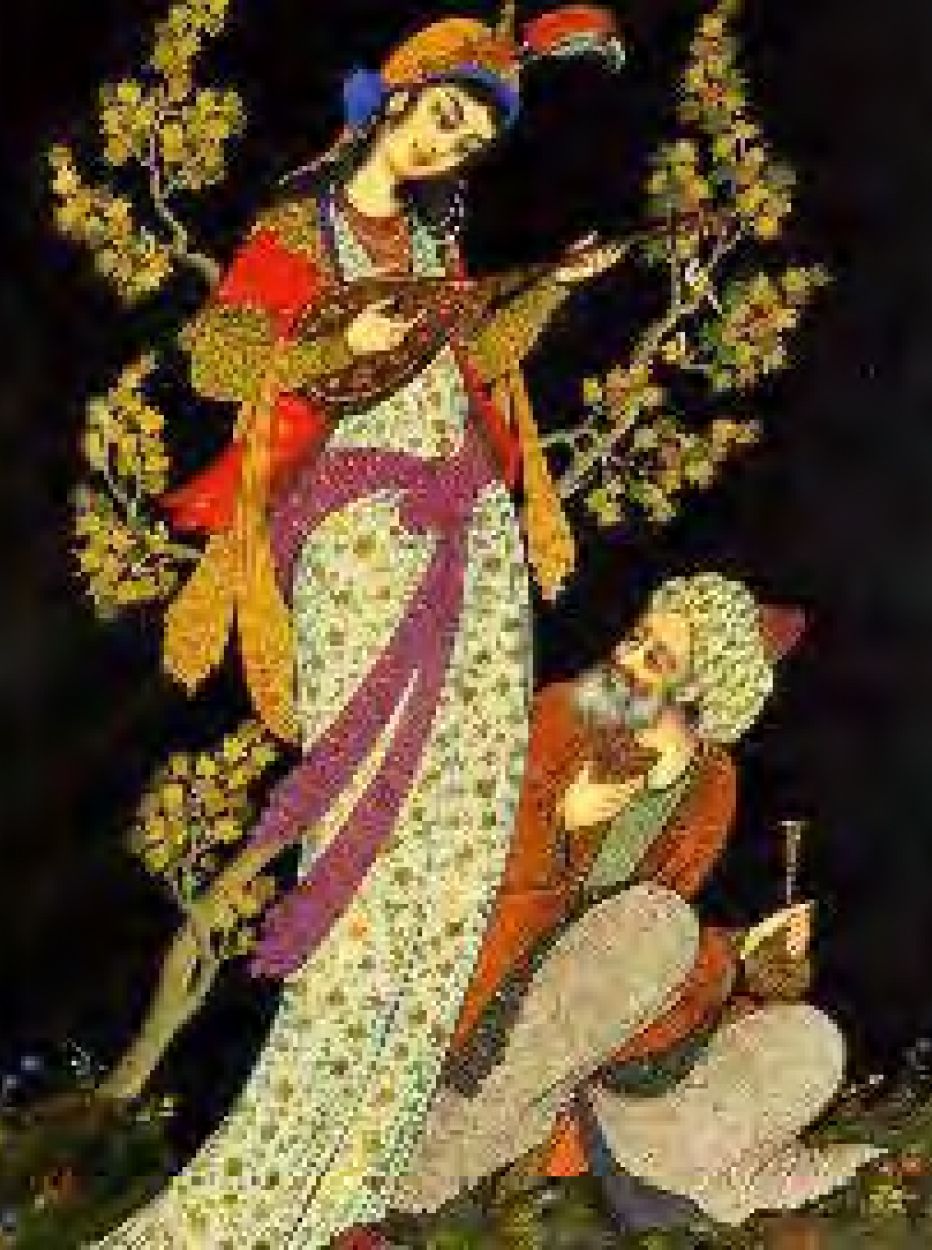
Marwa gifted him a silver medallion with a poem by Mansour al-Hallaj and she carved his name on a piece of wood. Wherever he traveled, he had it with him. Eventually, Shams found himself prisoner to the Zaghawa warriors, a ruthless tribe in North Africa, while Marwa was introduced to
a more traditionally acceptable man. The couple never fulfilled their love, known in the Arabic culture as “Virgin Love.” In 1937, the medallion and woodcarving was found in his tomb—signifying the undying love between Marwa bint Ahmad and Shams “Al-Majnun” Al-Faransi.
Antarah was the son of Shaddad al-Absi, a warrior of Banu Abs, a Bedouin tribe. His mother, Zabeebah, was an Ethiopian princess taken captive and enslaved by al-Absi during a raid against Axum, an ancient kingdom in Northern Ethiopia. Antarah was born a slave himself and his father’s wife, Shammeah, treated him with hostility. When Antarah fell in love with his cousin, Ablah, a notable love story began for the slave-turned-warrior who sought to claim his love. “Defend your tribe, O ‘Antar, and you are free.” He grew up to be a respected warrior and talented poet.
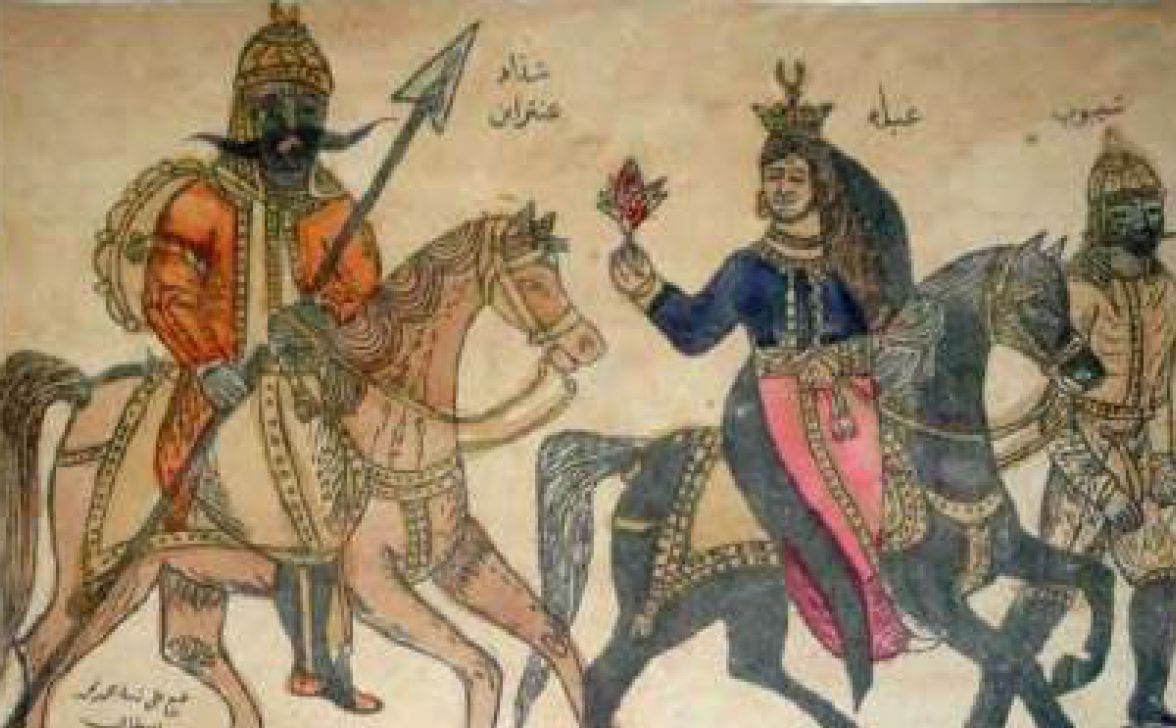
An invasion against his own tribe gave him the chance to prove himself. As a mighty fighter, his father encouraged him to defend his tribe and promised him freedom in return. After he defeated the invaders, he earned his freedom and was permitted to marry Ablah.
Was his motivation for his freedom alone or for his love for Ablah? As a true poet, it is fitting to believe his love carried him throughout the fight to win not only the battle, but also the heart of Ablah. For more about this tale, check out our article, “Add to your bucket list: The Love Rock,” from our inaugural issue, Isolation.
